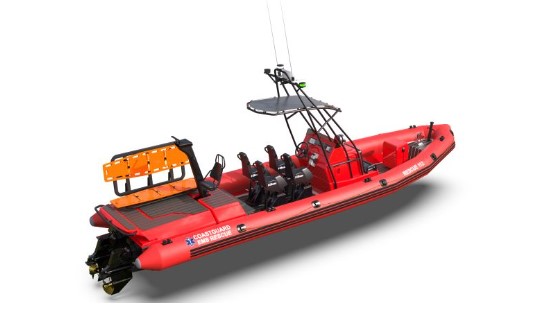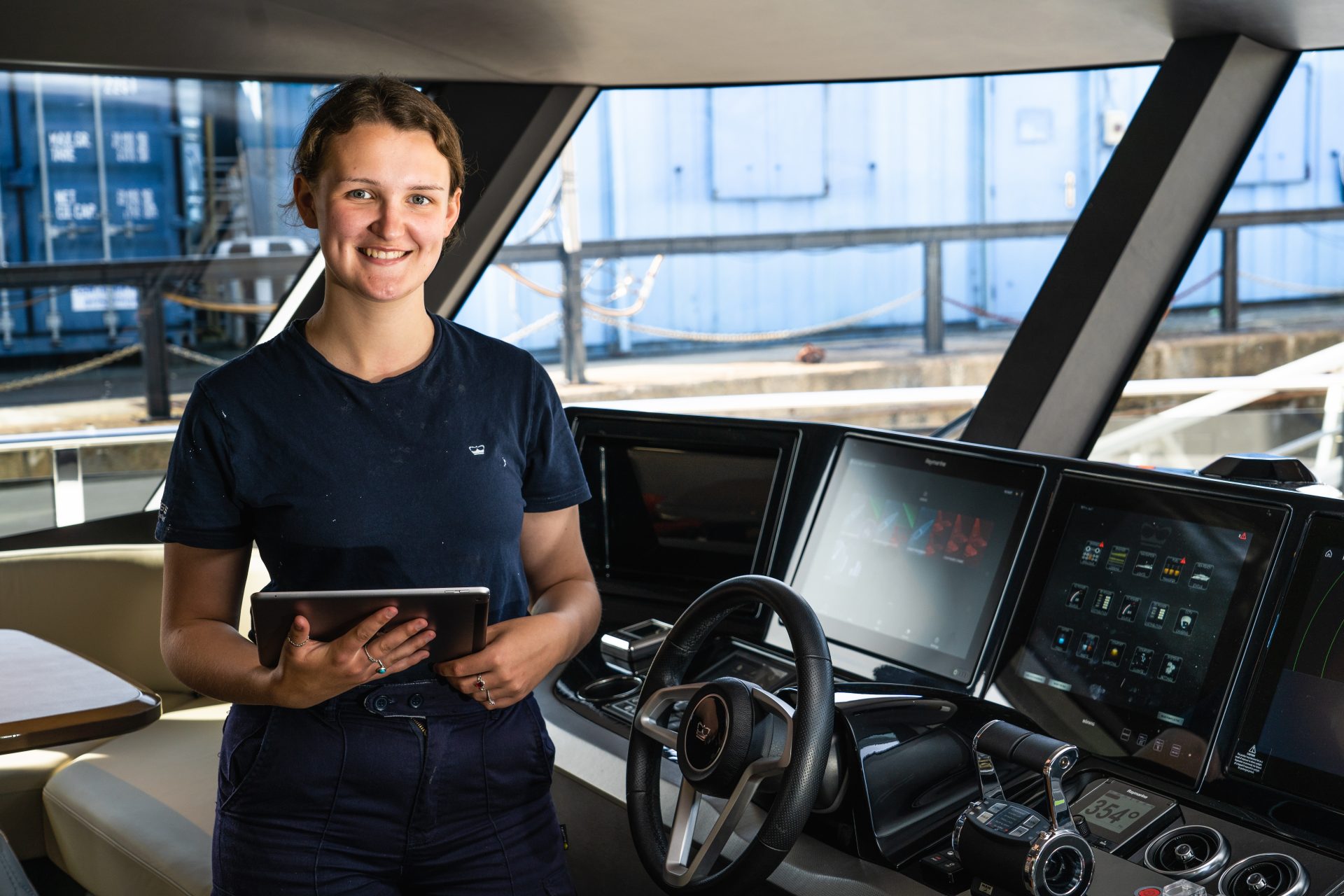17th March 2023
The International Maritime Organisation’s (IMO) Greenhouse Gas study highlighted that maritime transportation emits around 940 million tonnes of CO2 annually and is responsible for around 2.5% of global greenhouse gas.
Without action it is projected to increase between 50% and 250% by 2050. With the ever-increasing global focus on sustainability and decarbonisation, the IMO targets a 50% reduction in emissions by 2050. In parallel, marine authorities are mandating greener drive solutions, especially in closed areas such as marinas and city waterways.
Technology has a key role to play in achieving an aggressive reduction in CO2, however, the industry must evolve to adapt new technologies that increase sustainability. This is especially true for technologies that have been developed and demonstrated in other industries already, such as the automotive and motorsport sectors.

The CHAMP 2 (Clean Hybrid Alternative Marine Powertrain) project seeks to demonstrate the benefits that can be realised through clean marine propulsion systems, whilst also validating and streamlining the digital workflow used to develop them. This will allow for alternative configurations to be identified and applied in a rapid and de-risked way, and in turn to assist in catalysing the clean-up of the maritime sector. Additionally, the project will address the standardisation of supply chain input and evaluate the skills and capability gaps that need to be resolved for successful delivery.
This project, led by PurpleSector, will take forward a prototype demonstration vessel to be tested in multiple real-world environments. It explores a number of potential market applications, including:
- leisure
- commercial
- defence
- harbour authorities
- rescue craft
This project builds on the success of the CHAMP 1 project which captured the attention of the wider maritime industry, with extensive engagement from potential application partners, some of whom are now engaged with this CHAMP 2 project. Consortium project partners include, Princess Yachts, Serco, BAE Systems and the RNLI.
The overwhelming feedback from the industry during and post CHAMP 1, was a common requirement for assistance in down-selecting suitable green powertrain technologies for their applications, a rising feeling of urgency as pressure mounts on each end user organisation to commit to a sustainable specification for the next generation of their fleets and a need to ensure the required green blue skills training providers are able to meet future training needs.

Providing full time courses and apprenticeships to 10,000 students per year and as a leading and award winning maritime training provider, South Devon College is well positioned to evaluate the impact on the capabilities and skills needed for maritime zero carbon propulsion including our existing knowledge and experience as apprenticeship training provider to consortium partner, Princess Yachts. Our role will be to take the output from all the other consortium project partner’s work packages and evaluate the impact on skills and capabilities needed to support the transformation of the marine sector to zero carbon emission.
As well as researching nationally green blue maritime training providers and their capabilities, we will also be determining training providers able to deliver relevant green skills training outside the maritime sector. Working with all the institutions identified we will propose recommendations for solutions to close the green blue skills gaps.
The Clean hybrid alternative marine powertrain (CHAMP) 2 project is part of the Clean Maritime Demonstration Competition Round 3 (CMDC3), which was announced in September 2022, funded by the Department for Transport and delivered in partnership with Innovate UK. As part of the CMDC3, the Department allocated £60m to 19 flagship projects supported by 92 UK organisations to deliver real world demonstration R&D projects in clean maritime solutions. Projects will take place in multiple locations around the UK from as far north as the Shetland Isles and as far south as Cornwall.
The CMDC3 is part of the UK Shipping Office for Reducing Emission’s (UK SHORE) flagship multi-year CMDC programme. In March 2022, the Department announced the biggest government investment ever in our UK commercial maritime sector, allocating £206m to UK SHORE, a new division within the Department for Transport focused on decarbonising the maritime sector. UK SHORE is delivering a suite of interventions throughout 2022-2025 aimed at accelerating the design, manufacture and operation of UK-made clean maritime technologies and unlocking an industry-led transition to Net Zero.
To view courses in marine and maritime, click here.
SDGs that align with this story










